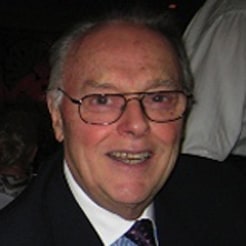
Thriving in a Disorderly World
The term VUCA gained popularity in the late 1980s drawing on the leadership theories of Warren Bennis and Burt Nanus to describe the Volatility, Uncertainty, Complexity, and Ambiguity of general conditions. In Leadership and the New Science: Discovering Order in a Chaotic World, Margaret Wheatley, an international management consultant, introduces the term CHAOS, which I interpret to mean Change, Harmony, Autonomy, Order, and Systems where we live in a world of:
- Relationships, where each event or person evokes new capabilities
- VUCA-on-steroids where order emerges out of chaos – if we are free to reach our own decisions based on shared meaning and values
- Effective response that does not require top-down leadership nor an organizational plan drawn up ahead of time
- Leaders who need to have the freedom to reach intelligent decisions based on their comprehension of the situation not their understanding of policies and procedures.
Back in January of 1993 I facilitated a leadership seminar in Cairo, Egypt. I had just begun to study Wheatley’s book, and was able to incorporate many of her ideas in my sessions in Cairo. It reminded me of chaos theory, which in leadership is understood as leaders understanding the environment in which they have to operate, guiding their team with strong vision, values, and beliefs. A business operates in a complex, unpredictable environment with coworkers having diverse skillsets and attitudes toward work.
Wheatley claims that sane leadership is the unshakeable faith in people’s capacity to be generous, creative, and kind. It is the commitment to create the conditions for these capabilities to blossom – protected from the external environment. It is the deep knowing that “even in the most dire circumstances, more becomes possible, as people engage together with compassion and discernment, self-determining their way forward.” The experience of living in collapsing systems is deeply challenging for all of us willing to look at such things.
In an International Servant Leadership Summit in October 2020, Wheatley reconnected us to our faith in the human spirit, which inspires us to serve. She also stressed that a new form of service leadership is required. When people live in so much fear and anxiety, they cannot lead from behind. They must move to the front and take charge. As people learn to trust in and experience our faith in them, only then will they move away from fear and willingly step forward to participate.
In her work with large organizations, one of the questions often asked is, “How would we work differently if we really understood that we are truly self-organizing?” The first thing recognized is that, just like individuals, the organizations we create have a natural tendency to change and develop. This is completely counter to the current mantra of organizational life. Many of us both fear and resist change. Many of us even hate change. Instead, in a self-organizing world, change is seen as a power, a presence, and a capability that is available. It is part of the way the world works – a spontaneous movement toward new forms of creativity and order.
- About the Author
- Latest Posts
Vice President Emeritus for Learning Technologies Donald Smith, Ed.D, CPT, headed ME&A programs in learning, leadership, and performance enhancement. He stayed with the firm in his retirement, bringing more than 65 years of experience as a coach, designer, facilitator, evaluator, manager, educator, and organizational change architect in more than 40 countries. He is affectionately known as ME&A’s MENCH.



